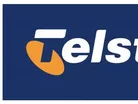Australia's Telecommunications Leaders

Telstra
Executives: David Thodey, CEO; Michael Rocca, COO; John Stanhope, CFO
ASX Code: TLS
Market Capitalization: $32.6 billion
Australia’s telecommunications sector has one standout heavyweight—Telstra. It has become the most widely held stock by Australian investors, and is the largest provider of both local and long distance telephone services, mobile services, dialup, wireless, DSL and cable internet access in the nation.
What can we expect from this telecommunications giant in 2011? Telstra CEO David Thodey unveiled “Project New” in 2010, which detailed the strategy and company program to grow market share, simplify company processes, reduce operating costs and improve customer service. The self-funding program involves 500 employees implementing 27 programs to reduce spending on third parties, improve Telstra’s online customer service, improve field workforce productivity, simplify prices and reduce the company’s operating costs.
“There is growing momentum in the business as customers respond positively to the initiatives we have taken over the past nine months including the introduction of competitive bundled offers, better value broadband plans, and devices like T-HubTM and T-BoxTM,” Thodey said.
Thodey also provided a detailed breakdown of a $1 billion investment to fund the strategy to grow, which aims to meet growing demand for mobile phone handsets, T-BoxTM and T-HubTM devices, develop new digital services for business customers, fund new network applications and services, conduct additional promotion and advertising, and simplify company systems.
Telecom New Zealand
Executives: Paul Reynolds, CEO; Nick Olson, CFO
ASX Code: TEL
Market Capitalization: $2.98 billion
Telecom is New Zealand's largest telecommunications service provider, and touches almost every New Zealander through the range of products and services it provides. The company employs almost 7,000 people in New Zealand and around 1,600 more in Australia and around the world. Telecom is now made up of five customer-facing businesses: Chorus; Telecom Wholesale & International; Telecom Retail; Gen-i and AAPT.
Last August, Telecom said it will be able to hold a shareholder vote on a possible demerger by the middle of 2011 if it’s selected as a partner in a national broadband plan. The government is planning a NZ$1.5 billion nationwide fiber-optic network and is weighing bids from potential partners, and Vodafone Group Plc and New Zealand’s electricity distributor, Vector Ltd., are among companies in 15 groups that have submitted proposals to take part. Telecom is seeking to be the government’s sole partner in the network’s development, arguing it already has much of the infrastructure in place.
Vodafone Hutchinson Australia
Executives: Nigel Dews, CEO
ASX Code: n/a
Market Capitalization: $1.4 billion
In Australia, Vodafone is operated by Vodafone Hutchison Australia, a 50/50 joint venture between Vodafone Group Plc and Hutchison 3G Australia. In 2010, there were 6.3 million Vodafone Hutchison Australia customers in Australia.
VHA said in 2010 that it has plans to consolidate the 3 and Vodafone networks, in an attempt to compete with Telstra’s Next G network, which covers an estimated 99 percent of the population. The plan includes the expansion of UMTS 900/2100 coverage in 900 metropolitan sites and 500 outer metropolitan sites across Australia, an end to the 3GIS network. It will also roll out 1400 UMTS 850 base stations - UMTS 850 being the same frequency on which the Next G network operates on. VHA has spent $550 million on the project so far.
The company said many initiatives would be completed in 2011 and when it was able to connect to the NBN there would be further opportunities for “network expansion and new services.”
SingTel Optus
Executives: Paul O’Sullivan, CEO; Murray King, CFO
ASX Code: SGT (Singapore Telecommunications)
Market Capitalization: $964 million
Following Telstra, Optus is the second largest telecommunications company in Australia, and is a wholly owned subsidiary of Singapore Telecommunications. Optus owns and operates its own network infrastructure, but also uses the services of other network service providers, like Telstra. It provides services both directly to end users and also acts as a wholesaler to other service providers. Through its OptusNet brand, it provides broadband, wireless and dial-up internet services.
Optus also owns brands, such as Alphawest in the ICT services sector, Virgin Mobile Australia and Boost Mobile in the mobile telephone market and Uecomm in the network services market.
In 2010, income at Optus rose 5 percent to $610 million, helped by the strongest mobile-phone customer growth in five years. Optus said the pace of decline in fixed-line services has slowed as businesses resume expansion after the global recession.
Featured Articles
Nirvik Singh, Global COO and President International of Grey Group, cultivating culture and utilising AI to enhance rather than replace human creativity
On a mission to accelerate the adoption of sustainable energy solutions, US$30 billion Chinese tech firm Longi is not just selling solar – but using it
Armed with an ambitious billion-dollar strategy, Samsung is on track to achieve net zero carbon emissions company-wide by 2050 – but challenges persist

